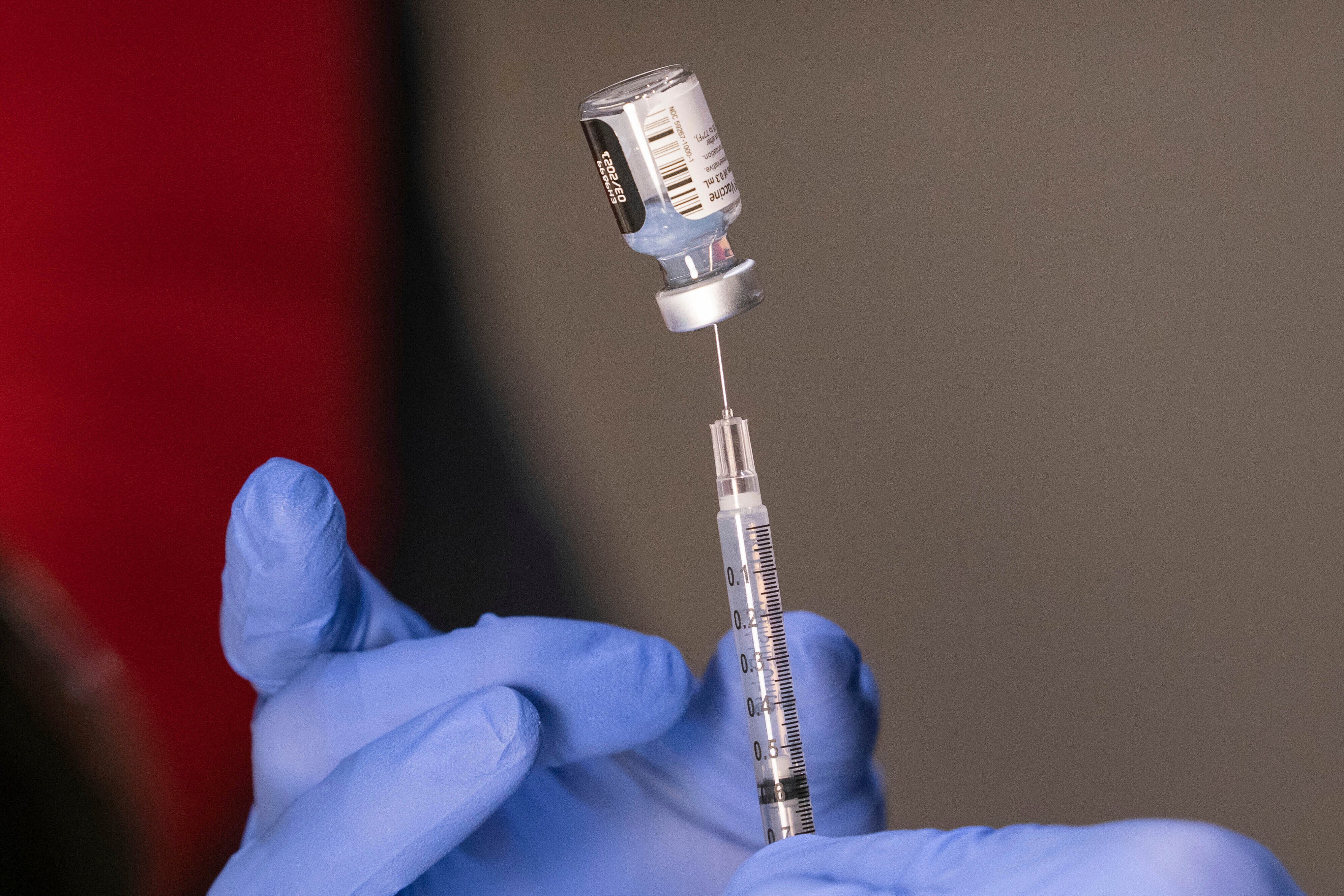WHO: Vaccination in Asia-Pacific expected mid or late 2021
The World Health Organization says countries in the Asia-Pacific region are not guaranteed to have early access to COVID-19 shots and urged them to adopt a long-term approach to the pandemic

Your support helps us to tell the story
From reproductive rights to climate change to Big Tech, The Independent is on the ground when the story is developing. Whether it's investigating the financials of Elon Musk's pro-Trump PAC or producing our latest documentary, 'The A Word', which shines a light on the American women fighting for reproductive rights, we know how important it is to parse out the facts from the messaging.
At such a critical moment in US history, we need reporters on the ground. Your donation allows us to keep sending journalists to speak to both sides of the story.
The Independent is trusted by Americans across the entire political spectrum. And unlike many other quality news outlets, we choose not to lock Americans out of our reporting and analysis with paywalls. We believe quality journalism should be available to everyone, paid for by those who can afford it.
Your support makes all the difference.The World Health Organization said Thursday that countries in the Asia-Pacific region are not guaranteed to have early access to COVID-19 shots and urged them to adopt a long-term approach to the pandemic.
“The development of safe and effective vaccines is one thing. Producing them in adequate quantities and reaching everyone who needs them is another," WHO Regional Director Dr. Takeshi Kasai told reporters in the Indonesian capital, Jakarta.
While some countries that have independent vaccine purchase agreements might start vaccination campaigns in the coming months, others could see vaccination begin in the middle or late 2021, said Dr. Socorro Escalante, WHO’s coordinator for essential medicines and health technologies.
“It’s important to emphasize that most, if not all, the countries in the Western Pacific region are a part of the COVAX Facility,” said Escalante. “Within the COVAX Facility we are expecting that the vaccines will be coming in on the second quarter of 2021.”
COVAX was set up by WHO, vaccines alliance GAVI and CEPI, a global coalition to fight epidemics, in an effort to ensure equitable access to vaccines across the world.
WHO representatives also urged that high-risk groups should be prioritized for vaccination as vaccines will only be available in limited quantities.
The health agency warned that mass vaccination will not stop the virus and that governments need to adopt a long-term mindset and approach when new cases are detected, including increased testing, contact tracing and quarantine measures.
“The virus does not rest, and so therefore we need to continue with our responses ensuring that they are implemented consistently,” said WHO Regional Emergency Director Dr. Babatunde Olowokure.
Olowokure also appealed to younger people — which represent growing number of new confirmed cases in the region —to adhere to social distancing and other measures.
The WHO Western Pacific Region is home to almost 1.9 billion people across 37 countries and territories.
Globally, the virus has infected more than 74 million people and killed more than 1.6 million. More than 41.9 million people have recovered from the disease.
___
The Associated Press Health and Science Department receives support from the Howard Hughes Medical Institute’s Department of Science Education. The AP is solely responsible for all content.